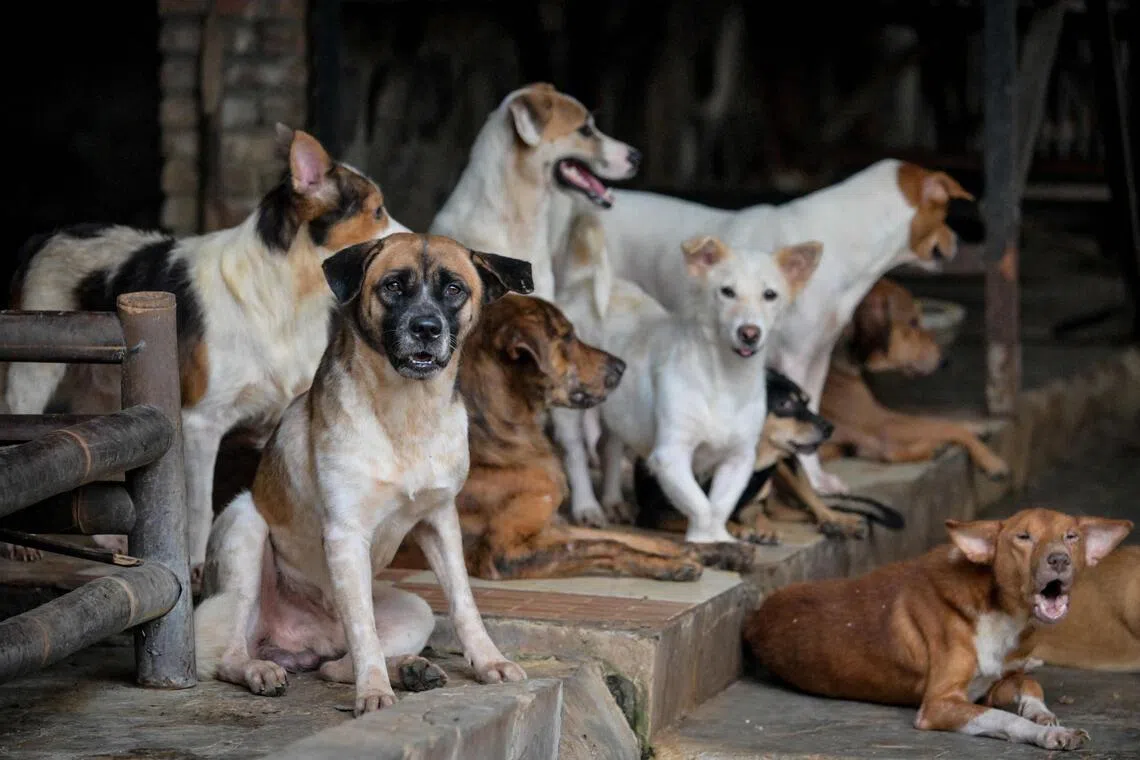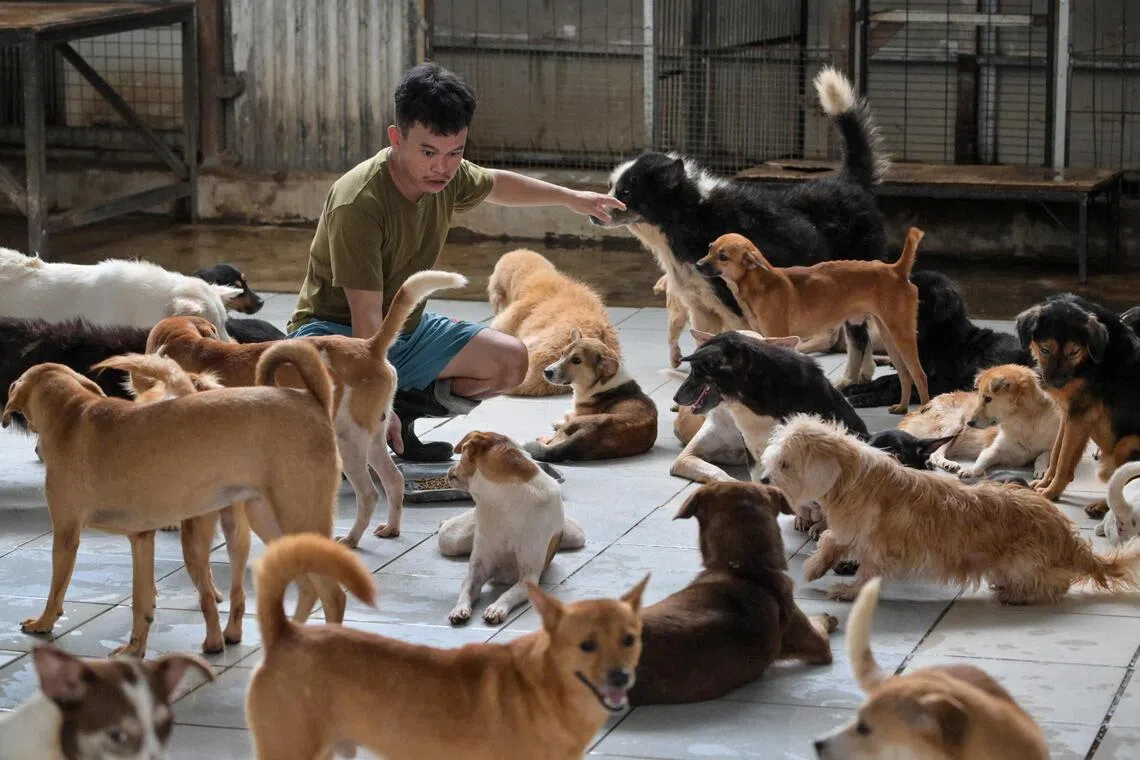‘God created it to be eaten’: Jakarta imposes divisive dog meat ban
Sign up now: Get insights on Asia's fast-moving developments

Strays rescued from a restaurant selling dog meat are gathered at a dog shelter in Jakarta.
PHOTO: AFP
JAKARTA – Sitting at an empty Jakarta stall, Mr Alfindo Hutagaol gobbled down some rice, green sambal and grilled dog meat, a meal that is now banned in the Indonesian capital.
The Muslim-majority archipelago is one of a handful of countries that still permit the sale of dog and cat meat, but a campaign against the practice has been gaining ground lately.
While Muslims do not eat dog meat, it is popular in some of Indonesia’s other communities.
This week, Jakarta’s authorities announced a ban
The prohibition, with a six-month grace period before enforcement begins, was hailed by animal rights groups that have long lobbied against the trade.
But for Mr Alfindo, “there should be no such prohibition”.
“God created it to be eaten. Don’t only look for the negative side, but also look for its benefits too,” the 36-year-old said.
Dog and cat meat are not widely consumed in Indonesia. But in some communities, canine meat is considered a home remedy for dengue fever.
The trade “can’t be eliminated suddenly”, said another consumer, 43-year-old Mr Sunggul Sagala, who described dog meat consumption as a “tradition” for some communities.
The announcement on Nov 25 by Jakarta’s governor covers trade for consumption of all rabies-transmitting animals, including bats, monkeys and civets.
“This is a real example and real commitment from the Jakarta government as a global city that also advances animal welfare,” said Ms Merry Ferdinandez of the Dog Meat Free Indonesia (DMFI) coalition that lobbied for the ban.
The move does not extend to other regions where consumption remains popular but might “encourage” similar moves, she said.
A poll commissioned by DMFI in 2021 found that 93 per cent of Indonesians rejected the dog meat trade and wanted it banned.
Yet, a DMFI study the following year estimated 9,500 dogs, mostly wild animals caught on the streets, were brought into Jakarta for consumption that year, mostly from West Java, where rabies is endemic.
Nationwide figures for dog and cat meat consumption are not available.
Rabies-free
Jakarta has been officially rabies-free since 2004 – one of 11 Indonesian provinces with that status – and the ban was “one of the efforts” to maintain that, said the capital’s food resiliency, maritime and agriculture agency head Hasudungan Sidabalok.
While it is no longer common to see dog meat sold openly either at markets or restaurants, he said 19 restaurants still serve the dish and at least two slaughterhouses are operating, expressing hope the new regulation would “minimise” such practices.
“It’s not an easy step because it is a habit or perhaps a culture for certain communities, which we hope can change,” he said.
“The act of slaughtering or consuming dog meat is still risky, as it can transmit rabies to the slaughterers or consumers.”
Jakarta’s government will publicise the ban during the six-month grace period, after which violators face sanctions ranging from written warnings to revocation of business licences.
Mr Hasudungan said the government is preparing rules to detail further enforcement and sanctions against violators.

A volunteer feeds strays rescued from a restaurant selling dog meat in Jakarta
PHOTO: AFP
Like ‘drugs’
Indonesian laws on food and animal husbandry do not explicitly ban the consumption of canine and feline meat, but a 2018 directive issued by the Agriculture Ministry stated that dog meat is not categorised as food.
Some regions have already imposed their own bans
In the Central Javan city of Semarang, which banned the trade in 2022, the authorities in 2024 intercepted a lorry carrying more than 200 dogs bound for a slaughterhouse and arrested five people.
In Jakarta, increased oversight by the authorities has already effectively forced the trade underground.
Restaurants that once openly advertised dog meat dishes no longer do so, nor will owners speak to outsiders about the trade. The meat is also no longer sold openly in markets.
The taboo around the trade means only trusted customers can buy it, and the meat is now more expensive than beef, said Mr Sunggul.
Even before the ban, “the fact is that purchasing dog meat is like looking for drugs”, he said.
There have been no explicit plans for how to deal with animals that may no longer have buyers. A similar ban on dog meat in South Korea has caused problems for traders left with animals that can no longer be sold and are not easy to rehome.
Mr Alfindo argues that dog meat fans might even be forced to prey on Jakarta’s stray dog population if the ban is enforced.
“The government should rethink the policy,” he said after finishing his dish. AFP


